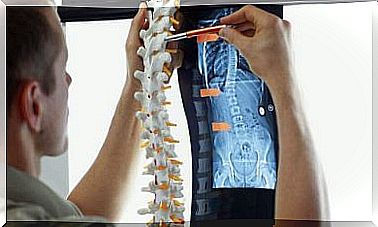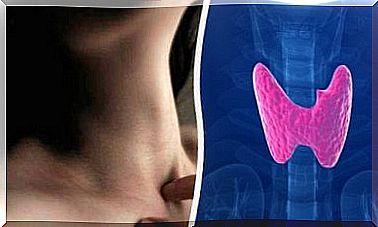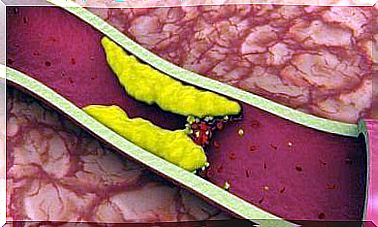Treatment Of Kidney Abscesses
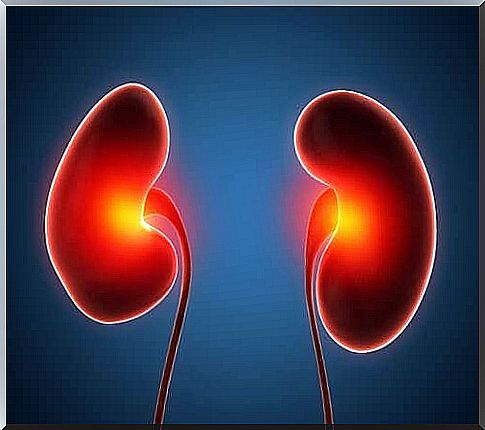
Kidney abscess is the accumulation of pus around one or both kidneys. They are generally the result of rupture of an acute cortical abscess. Unfortunately, kidney failure has high mortality because it is difficult to diagnose.
It manifests itself at an average age of 46 years, and 80% of cases affect women. Although rare in children, their consequences can be serious. These include sepsis, severe kidney damage or even kidney failure.
Risk factors for renal abscess
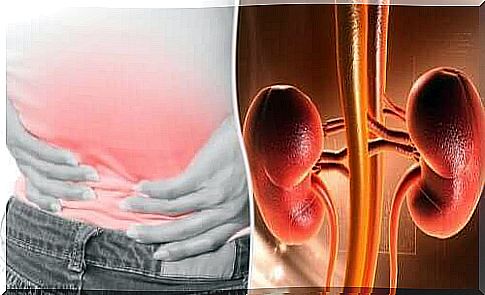
Experts have identified some available factors. Some of the most important are:
- Diabetes
- Kidney stone.
- Urinary tract infection.
- Vesicoureteral reflux (reflux of urine from the bladder to the ureters or kidneys)
- Trauma.
- Malignant disorders.
- Liver disease.
40% of patients have several associated risk factors. Patients diagnosed with diabetes more than 10 years ago need more intensive care and nephrectomy (removal of one kidney).
The symptoms tend to last an average of 11 days before diagnosis. However, only 35% of patients are diagnosed correctly when they are admitted to the hospital. This is due to the lack of specific clinical data.
Also read: Reasons why you may have kidney pain
Causes
Kidney abscesses are caused by urinary tract infections that start in the bladder. Then they spread to the kidneys and the area around them. Urinary tract surgery, reproductive system surgery or a bloodstream infection can also lead to kidney abscess.
The biggest risk factor is kidney stones, which block the flow of urine and can cause infection. Bacteria adhere to kidney stones and antibiotics cannot kill them there.
Between 20% and 60% of people with kidney abscesses have kidney stones. Other risk factors for kidney abscess include diabetes, having an abnormal urinary tract, trauma, or intravenous drug use.
Symptoms and diagnosis
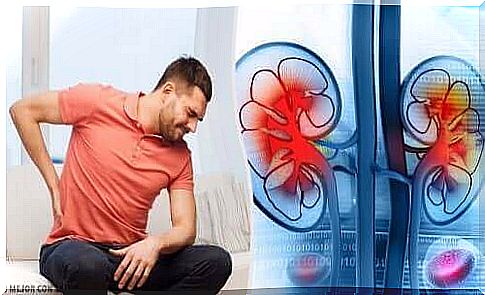
Some of the symptoms of kidney abscess are chills, fever, sweating and pain in the flank or abdomen. However, the pain can radiate to the groin or leg. In addition, the patient may suffer from back pain.
Diagnostic tests include:
- Blood tests and blood culture.
- Computed tomography (CT) scan.
- Urine analysis with a urine culture.
Treatments
The most commonly accepted treatment is drainage of the abscess, either percutaneously or through open surgery. To treat kidney abscess, the pus can be drained through a catheter placed through the skin or by surgery.
Similarly, antibiotics should be administered, initially through a vein. Later, the patient can switch to oral treatment when the infection improves. Open drainage is the option that most likely solves kidney abscess.
Also read: Get better kidney function with these foods
Antibiotics for kidney abscesses
Antibiotics are the first line of treatment for this condition. Drugs and how long the patient should take them depends on their state of health. However, medical professionals must also take into account the bacteria present in a urine sample.
Usually, signs and symptoms of a kidney infection begin to disappear within a few days after starting treatment. However, the patient may need to continue taking antibiotics for a week or more.
Experts recommend making another urine culture to make sure the infection is gone. However, if the infection continues, the patient will require another antibiotic treatment.
If the infection is severe, hospitalization may be necessary. In this case, treatment may include intravenous antibiotics and fluids.
To reduce discomfort during your recovery, you can take a number of measures, such as:
- Add heat. Place a heat wrap on your stomach, back or side to relieve the pain.
- Take painkillers. To lower fever or reduce discomfort, take painkillers such as acetaminophen or ibuprofen.
- Drink fluids. Staying well hydrated can help eliminate bacteria through the urinary tract. You should also avoid drinking alcohol or coffee until the infection disappears.
In conclusion, renal abscess is a serious complication that requires medical attention. If you notice any symptoms, it is best to consult a specialist so they can diagnose you and make sure the problem does not lead to serious consequences.




